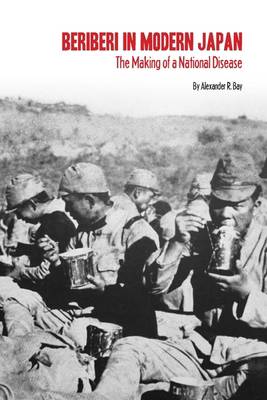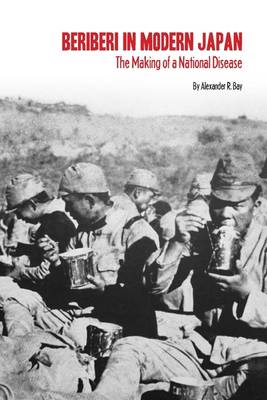
- Retrait gratuit dans votre magasin Club
- 7.000.000 titres dans notre catalogue
- Payer en toute sécurité
- Toujours un magasin près de chez vous
- Retrait gratuit dans votre magasin Club
- 7.000.000 titres dans notre catalogue
- Payer en toute sécurité
- Toujours un magasin près de chez vous
Description
The history of the medical and scientific debate about the etiology of the disease as it played out between diet theorists and contagionists from 1880 to 1940. In modern Japan, beriberi (or thiamin deficiency) became a public health problem that cut across all social boundaries, afflicting even the Meiji Emperor. During an age of empire building for the Japanese nation, incidence rates in the military ranged from 30 percent in peacetime to 90 percent during war. Doctors and public health officials called beriberi a "national disease" because it festered within the bodies of the people and threatened the health ofthe empire. Nevertheless, they could not agree over what caused the disease, attributing it to a diet deficiency or a microbe. In Beriberi in Modern Japan, Alexander R. Bay examines the debates over the etiologyof this "national disease" during the late nineteenth and early twentieth centuries. Etiological consensus came after World War I, but the struggle at the national level to direct beriberi prevention continued, peaking during wartime mobilization. War served as the context within which scientific knowledge of beriberi and its prevention was made. The story of beriberi research is not simply about the march toward the inevitable discovery of "the beriberi vitamin," but rather the history of the role of medicine in state-making and empire-building in modern Japan. Alexander Bay is assistant professor of history at Chapman University.
Spécifications
Parties prenantes
- Auteur(s) :
- Editeur:
Contenu
- Nombre de pages :
- 240
- Langue:
- Anglais
- Collection :
- Tome:
- n° 24
Caractéristiques
- EAN:
- 9781580464277
- Date de parution :
- 15-12-12
- Format:
- Livre relié
- Format numérique:
- Genaaid
- Dimensions :
- 236 mm x 160 mm
- Poids :
- 521 g







